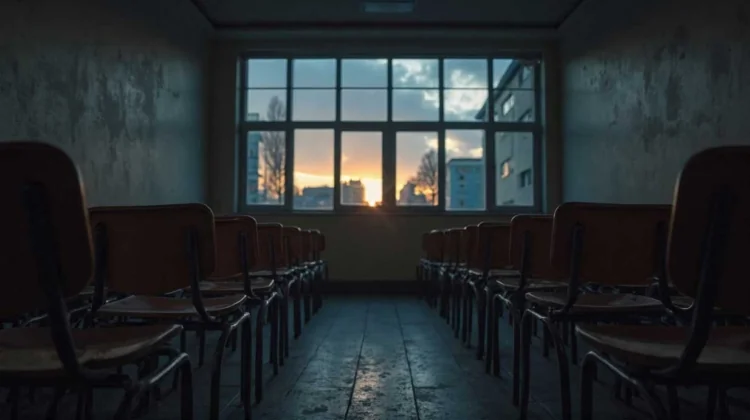
[Want even more content from FPM? Sign up for FPM+ to unlock exclusive series, virtual town-halls with our authors, and more—now for just $3.99/month. Click here to sign up.]
Complaining about the younger generations has been a common habit for many millennia. The Greek poet Hesiod in the 8th Century B.C. groused about the young, “I see no hope for the future of our people if they are dependent on the frivolous youth of today, for certainly all youth are reckless beyond words. When I was a boy, we were taught to be discrete and respectful of elders, but the present youth are exceedingly wise [disrespectful] and impatient of restraint.”
But the antiquity of such clichés doesn’t mean that in our time there hasn’t been a decline in child-rearing and education that has created flawed characters, dangerous ideologies, and bad habits among our young. For many traditional moms and dads, “gentle” parenting coddles and spoils children not just at home, but in grade schools, universities, and jobs, and accounts for many of the problems and dysfunctions of our young people.
Hence the trend of FAFO––the “f–ck around and find out” method of child-rearing. The New York Post reports one pioneer mother, Janelle who explains this novel child-rearing in her video. “I practice authoritative parenting but within what I would consider a subgenre that I would call ‘f*ck around and find out’ parenting… [kids] get their natural consequences and get to figure out the way through them.”
Just saying “authoritarian” will shock and anger school teachers and “gentle childrearing parents.” But for multiple decades, American primary schools and parents alike have failed dismally at educating and rearing many of our children––a national disgrace for the freest, richest country in the world. Part of the problem is the idea that learning should be “fun” and “affirming” students’ self-esteem, rather than requiring a work ethic to achieve proficiency and knowledge by meeting the challenges of rigorous standards.
Prioritizing “affirmation” also encourages dubious pedagogical theories like discarding memorization, examinations, formal grammar and writing, quizzing, and rote learning from lectures. The au corant credentialed mockers of traditional pedagogy smear these methods as “drill and kill” by the autocratic “sage on the stage.” All the painless coddling, and “gentle” therapeutic indulgences that also characterizes “gentle child-rearing” makes realist FAFO pedagogy a necessary reformation.
But the corruption of education and child-rearing by the therapeutic imperative has not just pollute K-12 education. For decades, the advent of “political correctness” in our most prestigious institutions has treated adult students as delicate “snowflakes” whose disappointments and thin-skinned lack of tolerance for insult and emotional trauma, are encouraged to responded to affronts with “primal screams,” and be cosseted with soothing “Healing spaces.”
With the advent of the “woke,” however, this catering to callow immature youths has exploded, reaching an astonishing level of moral and practical stupidity unimaginable a few decades ago. Back then, no one could have imagined university students in our most prestigious institutions would be chanting genocidal, antisemitic slogans, and praising sadistic jihadist terrorists who follow a creed that proscribes every dimension of the students’ beliefs and customs.
How did this dangerous dysfunction of education and “gentle” child-rearing happen? Like so many other problems, bad ideas that began in the 19th Century started discarding foundational principles and morals. Most important has been the rejection of the tragic vision of human existence that for centuries most people accepted, and its replacement by the therapeutic delusion.
From the Ancient Greeks to the Founding Fathers, the eternals, non-negotiable conditions of existence made humans hostages to time, sickness, want, and death; to unforeseen changes and disasters; to a capricious, indifferent, harsh natural world; and most important, to their own destructive impulses, appetites, and passions that their minds, virtues, and laws can only sporadically control.
Particularly destructive was the violence of war, an eternal plague of humanity’s desires for power and possessions. This tragic vision was examined and codified by the ancient Greeks with theatrical productions and by history. Thucydides’ History of the Peloponnesian War [early 5th Century B.C.] remains a classic exploration of the tragic reality of human life.
Documenting the horrific violence of the revolutions that erupted during the war throughout the Greek world, he writes, “The sufferings which revolution entailed upon the cities were many and terrible, such as have occurred and always will occur as long as the nature of mankind remains the same,” for war confronts people with “imperious necessities” and “so proves a rough master that brings most men’s characters to a level with their fortunes.”
The other foundational civilization of the West, Christianity, also put a flawed humanity at the center of its theology. Because of the Fall, we are all born prone to sin, and incapable by our own will to overcome our faults or restore our lost spiritual connection to God. As the most influential theologian of 18th century America, Jonathan Edwards, put it, “the innate sinful depravity of the heart” and the “state of man’s nature, that disposition of the mind, is to be looked upon as evil and pernicious,” and “tends to extremely pernicious consequences.” Only salvation through Christ can create true happiness, virtue, and moral integrity. In the fallen world, however, the same tragic conditions of existence will continue to foment evil and disaster.
Yet by the mid-18th Century two epochal changes had begun to expand the ideas and philosophies that would profoundly redefine the West and its institutions. The increasing expansion and success of science, especially in creating multiple astonishing new technologies that improved every material existence of human life––to an extent that just a century earlier these wonders would have been thought miracles. Yet many scientists, and most today, credited human intelligence, not faith or scripture or God’s will, for these wonders, and began to relentlessly appropriate the authority once possessed by the supernatural or faith.
Moreover, this success encouraged the dubious belief that the New Knowledge and technologies could likewise be discovered for improving not just the material world, but people’s minds, will, imaginations, morals, and social institutions as well. These new “human sciences” were claimed to lead to similar improvements, if not utopia, that could create happiness and minimize unhappiness and suffering. Human misery was now believed to spring not from our permanently flawed, human nature and dangerous choices, but from irrational superstitions institutionalized in religion, tradition, and unjust social and political orders.
The next epochal change was the growth and power of secularism––“the growing tendency,” as historian Owen Chadwick defined it, “of mankind to do without religion.” The increasing spread and success of science jump-started secularism, and appropriated the authority of religion, now reduced to a quaint, if not dangerous superstitions.
But the claims that the “human sciences” could function as successfully material science, and provide objective facts and theories about human behavior. But these arrogant claims ignored that human nature lie beyond the “complexity horizon,” which mathematician John Allen Paulos defines as “that limit or edge beyond which social laws, events, and regularity are so complex as to be unfathomanble, seemingly random.”
Thus, teaching students who each have unique experiences, backrounds, and cognitive abilities, cannot be a “science.” The attempt to train teachers with faddish pseudoscientific theories will only end up exposing children to ignorance and political preferences. Likewise, raising children by abstract, “scientific” precepts and theories––which replace traditional wisdom and common sense gleaned from thousands of years of human experience––will also fail, as we have witnesses for decades
Too many of our schools need serious reforms, and too many of our young are not receiving an upbringing that creates responsible adults with moral fortitude. If the FAFO pedagogy can teach kids responsibility for their actions, and that there are consequences to behavior, that will be a good start for ensuring our future.















